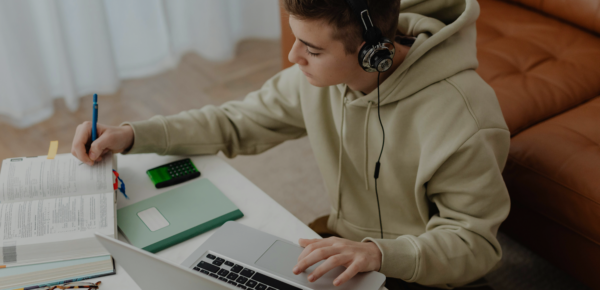For many students, studying can feel overwhelming or tedious, but it doesn’t have to! With the right strategies, you can make your study time more productive, efficient, and enjoyable. Whether preparing for an upcoming test or trying to keep consistent with your homework, these five study hacks will help you work smarter, not harder.
The Pomodoro Technique
The Pomodoro Technique is a time management strategy that keeps you focused while giving your brain regular breaks to recharge. It encourages manageable 25-minute intervals, helping students concentrate intensely without feeling overwhelmed. Short breaks after each session help to prevent mental fatigue and enhance long-term productivity.
How It Works:
- Set a timer for 25 minutes and study without distractions.
- Take a 5-minute break when the timer goes off.
- After completing four “Pomodoros” (25-minute sessions), take a more extended break (15–30 minutes).
Why It Works:
This method helps you stay focused in short bursts, prevents burnout, and keeps procrastination at bay. It’s perfect for tackling big tasks in smaller, more manageable chunks.
Active Recall: Your Brain’s Best Friend
Active recall is about quizzing yourself on the material rather than passively rereading notes or textbooks. By consistently practicing active recall, students develop stronger memory skills.
How To Use It:
- After studying a topic, close your notes and try to recall key concepts or facts.
- Create flashcards with questions on one side and answers on the other.
- Test yourself regularly to strengthen your memory.
Why It Works:
Research shows that active recall strengthens neural connections in the brain, making it easier to remember information when it counts, like during a presentation or exam.
Teach What You’ve Learned
They say the best way to learn is to teach. Explaining concepts to someone else helps solidify your understanding and identify any gaps in your knowledge. Explaining concepts aloud requires active recall and strengthens understanding, as students must retrieve information from memory and articulate it clearly.
How To Use It:
- Teach a friend, sibling, or even a pet what you’ve just studied.
- Use simple language to explain the topic as if you’re speaking to someone new to it.
- If you stumble, go back to your notes and try again.
Why It Works:
Teaching forces you to organize your thoughts and ensures you understand the material, not just memorize it.
Create a Study-Friendly Environment
Your study environment dramatically affects your ability to concentrate and retain information. A study-friendly environment helps students study effectively by minimizing distractions and creating a space that promotes focus and productivity.
Tips To Optimize Your Space:
- Choose a quiet, clutter-free area with good lighting.
- Keep essentials like pens, highlighters, and your water bottle within reach.
- Use background music or white noise (if it helps you focus).
Why It Works:
A dedicated, distraction-free study space signals your brain that it’s time to focus, making your study sessions more effective.
Use Visual Tools
Not all learning happens through reading. Many students retain information better when it’s presented visually. Techniques such as mind maps, diagrams, charts, and colour-coded notes organize ideas in a way that highlights connections and relationships between concepts, strengthening comprehension.
How To Use It:
- Use visual techniques to organize ideas and show connections between concepts.
- Colour-code your notes with highlighters or markers to emphasize key points.
- Watch videos or tutorials for subjects that are easier to understand visually, like math or science.
Why It Works:
Visual tools engage your brain in new ways, helping you process and remember information more effectively.
Bonus Tip: Don’t Forget to Take Care of Yourself
Effective studying isn’t just about what you do at your desk. Taking care of yourself helps students study effectively by ensuring that the mind and body can focus, retain information, and problem-solve. Make sure you’re:
- Getting enough sleep: A well-rested brain is much better at retaining information
- Staying hydrated: Water keeps your brain and body functioning at its best
- Taking breaks: Allow yourself time to recharge so you don’t burn out
Students can maximize their productivity, reduce stress, and achieve better results using these study hacks. Try incorporating one or two of these strategies into your routine, and watch how much easier studying becomes!
